SEMCOG’s Healthy Climate Task Force recently held its first meeting, kicking off a two-year process to develop the Southeast Michigan Healthy Climate Plan. This is a big step for our region, and here are three things to know as the project gets started:
1. It’s bringing the region together
 ‘
‘
Task Force Co-chair, Coleman A. Young II, Councilmember at Large for the City of Detroit
Across the country, communities continue to face new climate challenges from increased flooding to poor air quality and extreme heat. Unpredictable conditions cause damage to our infrastructure and ecosystems, and they weaken the resilience of our communities. To develop regional solutions for Southeast Michigan, the Healthy Climate Task Force is bringing together local elected officials, sustainability leaders, State of Michigan agencies, utilities, and expert stakeholders in environmental, transportation, workforce, and community development issues. It is led by co-chairs Sheila Tomkowiak, Mayor of the City of Grosse Pointe, and Coleman A. Young II, Councilmember at Large for the City of Detroit.
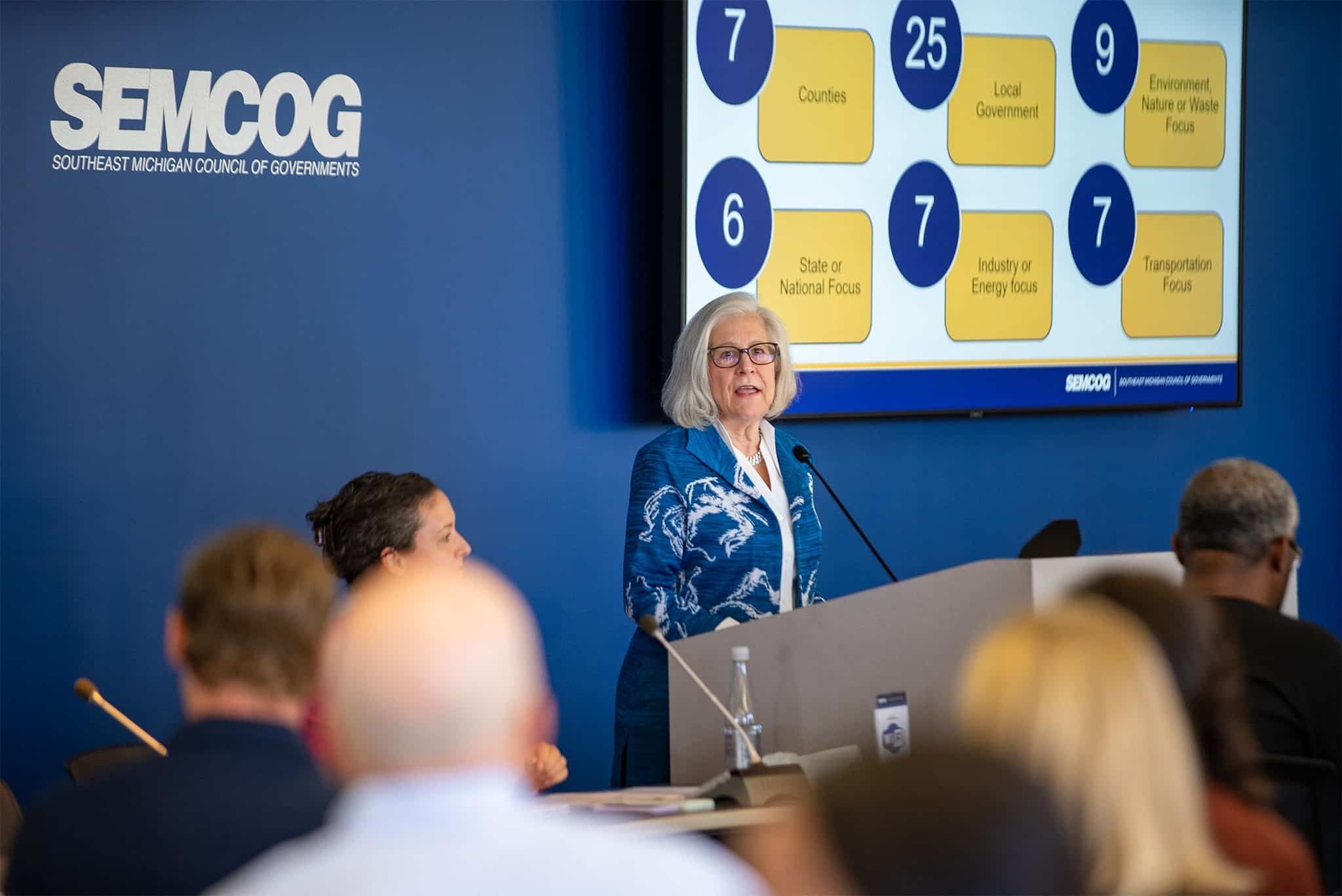
Task Force Co-chair, Sheila Tomkowiak, Mayor of the City of Grosse Pointe
At the first meeting, Co-Chair Tomkowiak highlighted the impacts of flooding in her community. She discussed other ways that the changing climate impairs air and water quality, also hurting our public health outcomes. Co-Chair Young discussed some opportunities to address these impacts. He shared examples of projects in Detroit that enhance electric vehicle (EV) infrastructure, use nature-based solutions like green stormwater infrastructure, and promote solar energy. He also highlighted the importance of uplifting the region’s most vulnerable communities, which are disproportionately impacted by climate pollution, and the City of Detroit’s ongoing public engagement efforts.
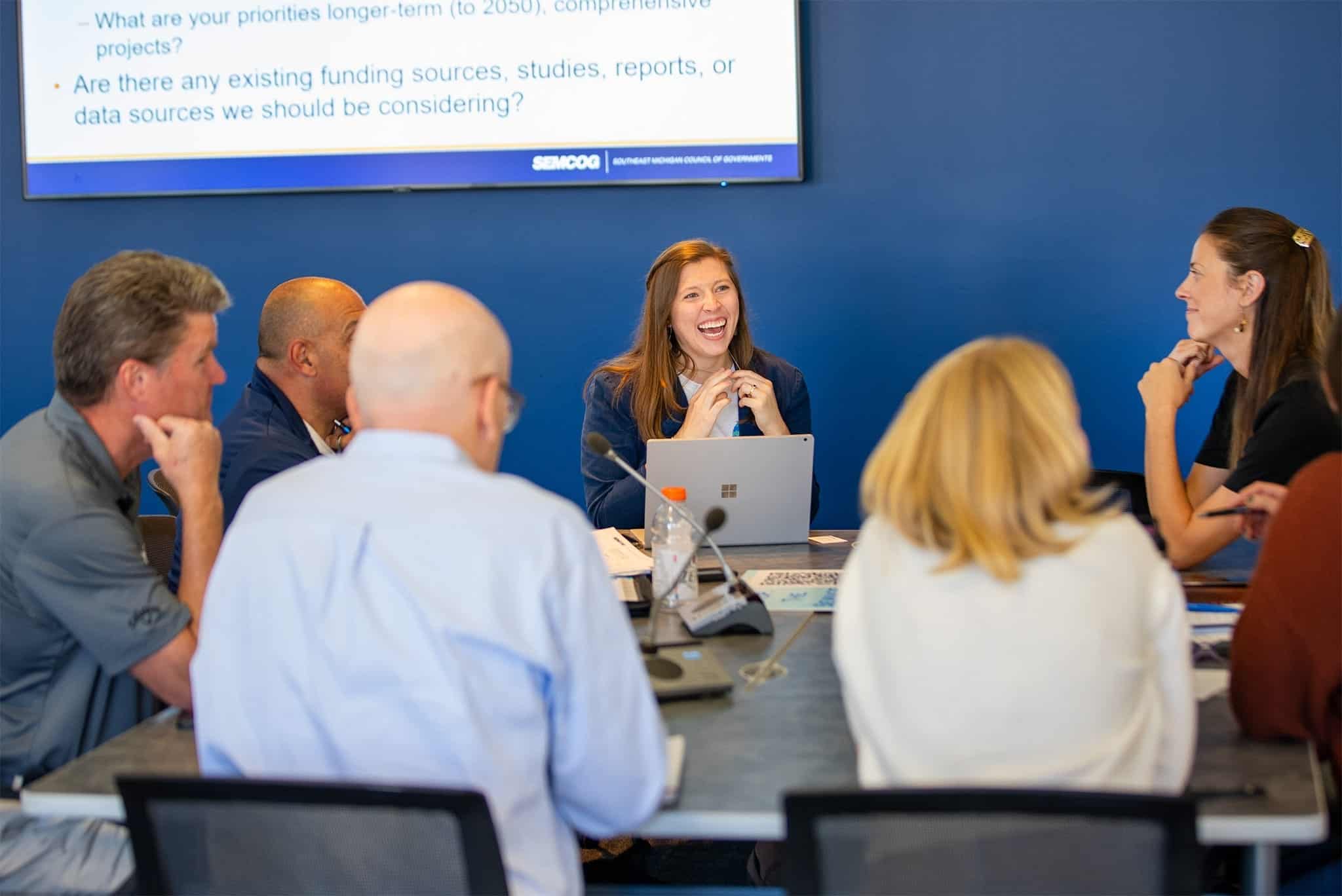
While several of the region’s communities have established goals and plans for sustainability and climate action, many others are facing these challenges with limited resources and capacity to address them. At the same time, many community-based organizations, nonprofit groups, and private-sector partners have made great progress and built momentum toward innovative solutions, programs, and projects. The Southeast Michigan Healthy Climate Plan is the region’s first step to connect and elevate these opportunities through a coordinated and inclusive regional plan, which builds on the State of Michigan’s MI Healthy Climate Plan.
2. Big funding opportunities
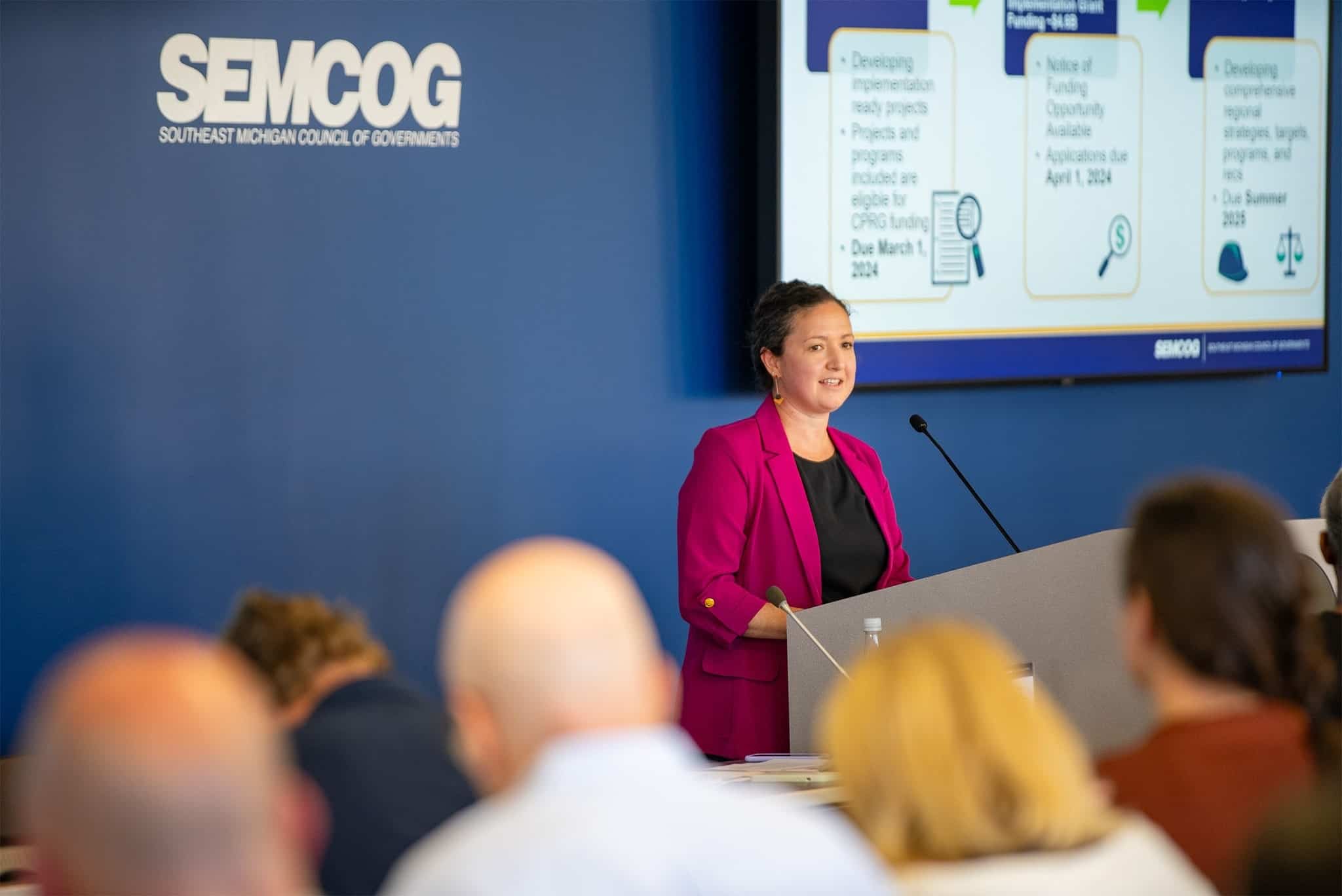
SEMCOG received funding to develop this plan through the US EPA’s Climate Pollution Reduction Program (CPRG), as a result of the Inflation Reduction Act. This program just announced more than $4 billion in implementation grants for projects that reduce climate pollution, a major investment in a cleaner economy that will spur innovation and growth while building more equitable, resilient communities. The region is also working closely with EGLE’s Office on Climate and Energy to align with goals in the State’s Healthy Climate Plan and their Priority Climate Action Plan under CPRG.
Competitive, nationwide grants will range from $2 million to $500 million each, with no required match. Only local, regional, and state government agencies are eligible to apply, and coalitions of eligible applicants that share project goals are strongly encouraged to submit proposals together.
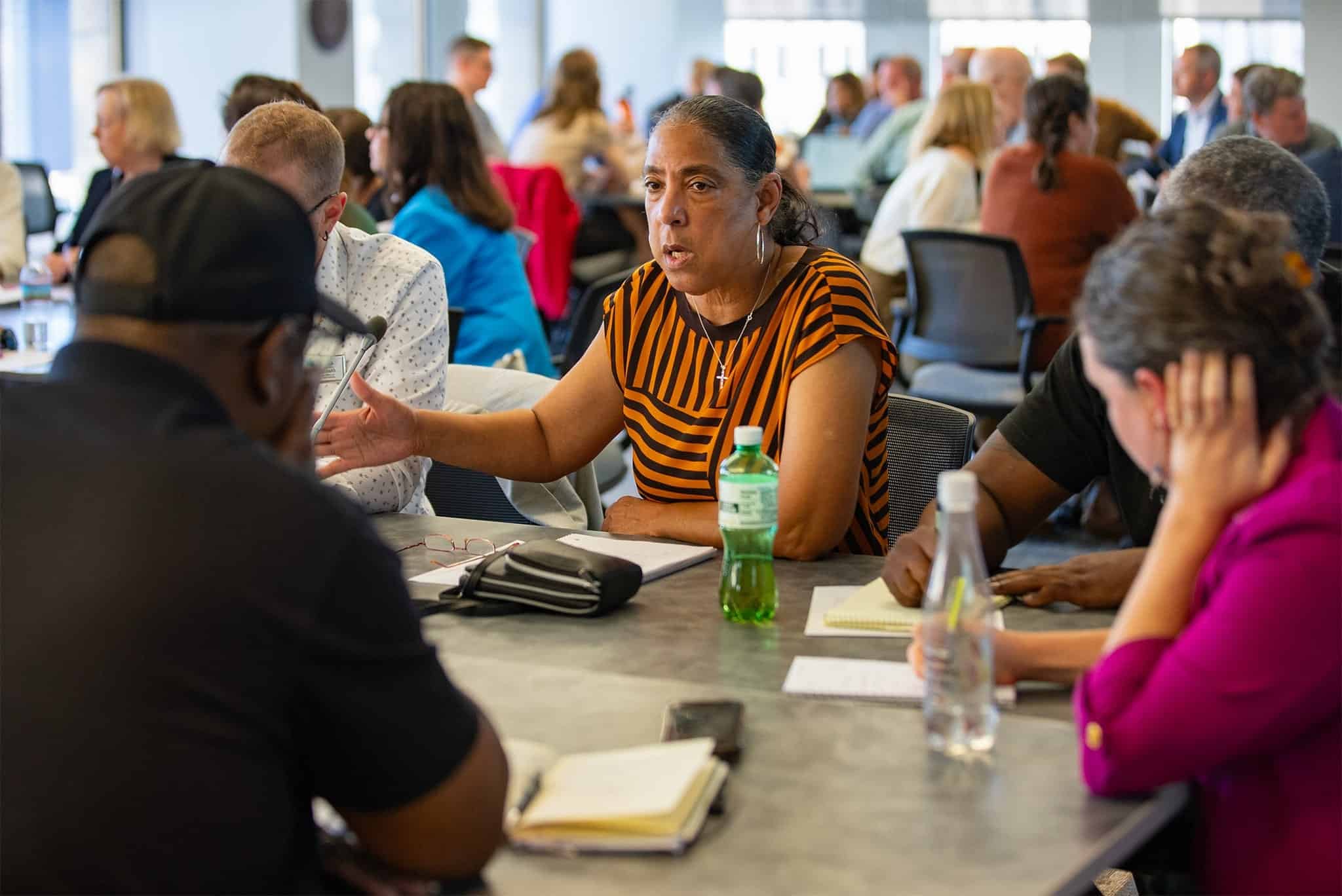
Successful grant applications will require strong regional coordination, and an applicant’s project must be included in the region’s or State’s Priority Climate Action Plan (PCAP) to be eligible. The PCAP is an early milestone for the region’s Healthy Climate Plan, and it is due to EPA in March 2024. With this tight timeline, Southeast Michigan’s PCAP will focus on measures to reduce climate pollution that could be put into effect quickly and target the region’s greatest opportunities for improvement. It will also analyze all potential projects to understand how much climate pollution they will reduce, their benefits to the environment and public health, their impacts on disadvantaged communities, and the readiness of the region’s workforce to support them, among other factors.
3. Stakeholder engagement is a significant factor
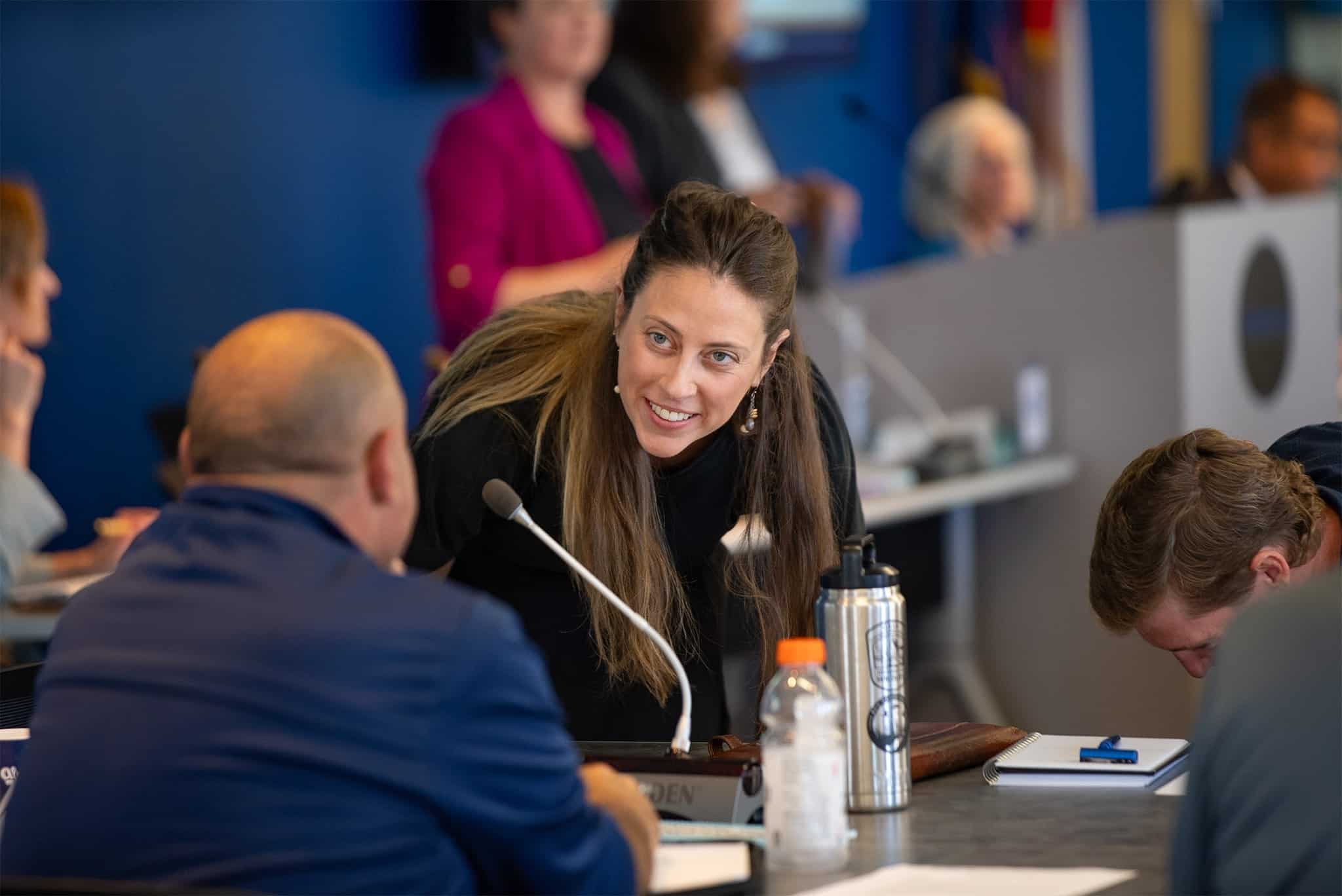
In addition to the Task Force, SEMCOG recently convened several focus groups to identify regional priorities and begin developing project ideas. Expert stakeholders met in small groups to discuss project opportunities in different sectors, including transportation, energy, waste, and nature-based solutions. For anyone looking to share potential projects or work with SEMCOG to develop their plans, we still want to hear from you!
Please use this form to submit your ideas for the PCAP by Friday, December 1, 2023.
A focus group was also held specifically on community engagement to discuss inclusive and impactful approaches that can guide this plan. Opportunities to hear updates on the process and share input on priorities will be frequent, ongoing, and reach across sectors and communities.
While the PCAP and implementation grants are the first major milestones in this process, the comprehensive Southeast Michigan Healthy Climate Plan will be finalized in the summer of 2025. It will include a more wide-ranging list of ambitious strategies to reduce climate pollution by 2050, and continued engagement will be critical to ensure that they address the region’s climate challenges, support our communities, and guide the region on paths toward implementation.
We look forward to hearing more from you as the Healthy Climate Task Force considers regional priorities and coordinates this process with other SEMCOG initiatives. Please sign up here to receive more updates along the way!

Leave a Reply